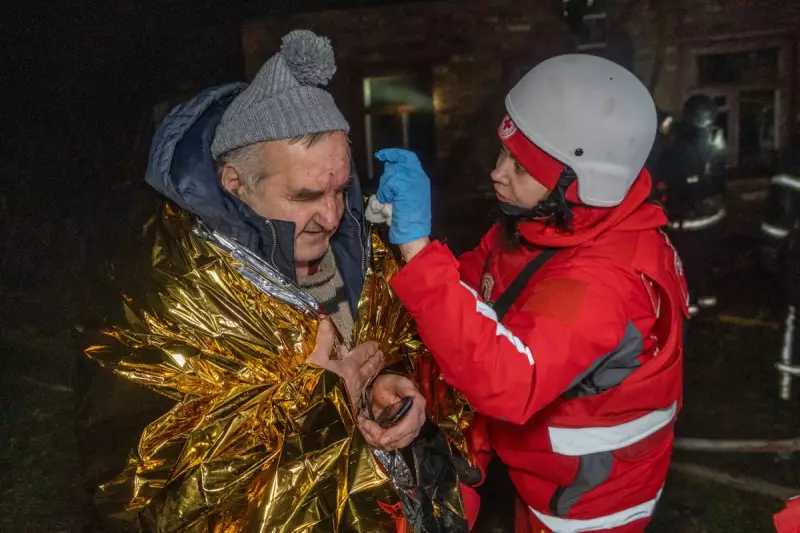
European officials have responded with cautious optimism following intensive discussions over revised American peace proposals aimed at ending the Russia-Ukraine conflict, acknowledging significant progress while warning the path to peace remains lengthy.
Diplomatic Breakthrough in Geneva
The weekend talks in Geneva focused on a 28-point peace plan presented by the United States that had initially caused alarm in Kyiv and European capitals for heavily favouring Moscow's demands. Finnish President Alexander Stubb described the negotiations as "a step forward" while noting "major issues which remain to be resolved" in a social media statement about Sunday's meeting between US and Ukrainian officials in Switzerland.
German Chancellor Friedrich Merz welcomed what he termed the "interim result" of the discussions, confirming the controversial US proposal "has now been modified in significant parts." He tempered expectations by adding: "It was possible to clear up some questions, but we also know that there won't be peace in Ukraine overnight."
Key Changes to Controversial Proposal
The original American plan had pressured Ukraine to concede territory to Moscow and reduce its military size, leaving the nation vulnerable. Most controversially, it sought European agreement to permanently block Ukraine from NATO membership, directly contradicting the alliance's previous declaration that Ukraine was on an "irreversible path" to joining.
German Foreign Minister Johannes Wadephul revealed significant progress, stating: "I would like to say that all issues concerning Europe or NATO have been removed from this plan, which is a decisive success that we achieved yesterday." He credited US Secretary of State Marco Rubio, who directed the Switzerland talks, with making "decisive positive contributions" toward making the plan acceptable to European and Ukrainian sides.
Rubio himself described the discussions as "very worthwhile" and the most productive day in "a very long time," expressing optimism that "we can get something done."
International Response and Next Steps
US President Donald Trump suggested the peace process might be moving positively, writing on Truth Social: "Is it really possible that big progress is being made in Peace Talks between Russia and Ukraine??? Don't believe it until you see it, but something good just may be happening."
Ukrainian President Volodymyr Zelenskyy struck a hopeful note, declaring "diplomacy has been reinvigorated, and that's good. Very good" after the Geneva meeting. The Ukrainian delegation returned home to report on the talks before determining next steps.
UK Prime Minister Keir Starmer confirmed that Ukraine's allies in the "coalition of the willing" - approximately 30 countries supporting Kyiv - would hold video talks about the negotiations on Tuesday.
Meanwhile, German Chancellor Merz emphasised that Moscow must now engage with the process. "The next step must be that Russia must come to the table," he stated during an EU-Africa summit in Angola, describing the process as "laborious" and expecting progress only in "smaller steps" rather than a breakthrough this week.
The Kremlin confirmed Russian officials haven't yet seen the revised peace plan text since weekend amendments were made. Spokesman Dmitry Peskov said no US-Russian meetings were scheduled for this week but Russia remained "open for such contacts."
War Reality Contrasts With Diplomatic Hope
Even as diplomacy advanced, the brutal reality of war continued. Russian drones struck residential areas of Kharkiv, Ukraine's second-largest city, overnight killing four people and wounding thirteen, including two children. The attack damaged eight residential buildings, an educational facility and power lines.
Ukraine's air force reported Russia fired 162 strike and decoy drones over the country overnight, with NATO member Romania scrambling fighter jets in response to drones near its border.
The peace talks emerge during a challenging period for Ukraine as the war approaches its fourth anniversary, with Ukrainian forces under severe strain against Russia's larger army while facing financial shortages and domestic political challenges.





